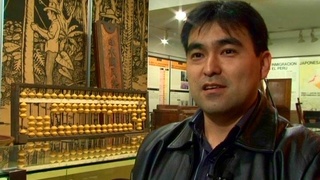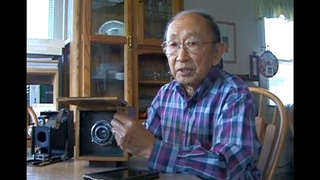Interviews
Insights from family on Japanese American internment
My dad told me about internment a long time ago. I think he told me really early. I know that when he told me, I didn’t quite grasp it. I was too young or at that point too interested in other things to be able to really understand the concept fully. And you’ll see as you get a little bit older. You’ll start to see it in history books, in school and whatnot. And you know, they devote…what do they devote? Like a half a page. You know, there’s a big picture of Pearl Harbor and this whole thing about how awful that was and then there’s a little thing about internment like in there somewhere.
And at that point, I think it struck me like, “That’s weird. Why don’t they…like my dad told me all about that and it’s weird that they didn’t really talk about it.” And I know over time…you know, I didn’t go on any big crusade to figure it out or anything. I think just over time, the collection of information happened and I started asking…I’d ask my relatives every once in a while. I’d ask people and the funny thing is they wouldn’t tell me. They’d give me such a watered down answer as to what their internment experience was. I think that that bothered me because of the “it-can’t-be-helped” attitude, the shikata ga nai attitude is so…it was so useful back then but these days, in my opinion right now, I just don’t…I think that that for my generation has been a little bit of…it’s been a little bit of a detriment, a little bit of a…like something that we personally wish that our older relatives and our elders would put aside to a certain degree so that we can learn about the story.
And so when I was making this Fort Minor record, my new record, it is like more of a solo kind of a project. It is more of a focus on my experiences mixed with my creative ideas. I’m making all the music, producing every song, mixing every song, and then lyrically, I wanted to get in some things that were my own. So I got into that subject a little bit, did an interview with my dad, who’s the second to youngest of 13. I mean they’re not all alive any more but 13 kids. And my aunt, who’s the oldest. So it’s the 2 perspectives. He was like 3 years old. She was in her 20s when…during the 40s when they were interned and I got…I think I got some really great insight into what happened.
Date: January 16, 2006
Location: California, US
Interviewer: Chris Komai and John Esaki
Contributed by: Watase Media Arts Center, Japanese American National Museum










